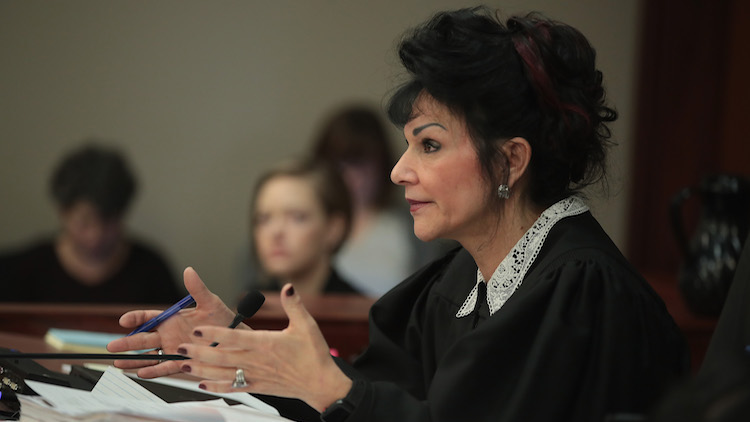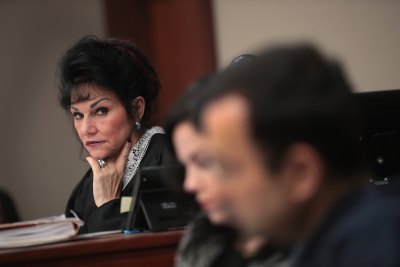
Getty Images
Quiet Hero Rosemarie Aquilina Turned Down Multiple Requests to Comment on Larry Nassar’s Case
On Jan. 24, Judge Rosemarie Aquilina sentenced disgraced USA gymnastics team doctor Larry Nassar to 175 years in prison and gave a voice to more than 150 women who chose to confront their abuser face-to-face. “I just signed your death warrant,” she said.
As she listened patiently while survivors shared their stories during the multi-day-long sentencing, she acted more like a therapist than a judge. “Leave your pain here,” the 59-year-old told them.
Despite receiving media requests from around the world, she insisted the story was not about her. Get to know more about the quiet hero in Larry Nassar’s disturbing case below.

Judge Rosemarie Aquilina looks at Larry Nassar as he listens to victim impact statements prior to being sentenced.
She was in the military
After having two children during law school and working for 10 years, Rosemarie joined the military. She became the first female Judge Advocate General (JAG) in the Michigan Army National Guard where she earned the nickname “Barracuda Aquilina.”
The Ingham County Circuit judge described herself as a “fighter” and believes she was born to go into law. In 2014, she told Detroit Legal News, “I stand up for people and say, ‘We’re going to do what’s right.'”
She’s a crime novelist
When she’s not putting serial molesters behind bars, Rosemarie writes. She wrote a crime novel called Triple Cross Killer and her next book will reportedly be out soon. She also used to host a radio talk show called Ask the Family Lawyer.
She’s no stranger to controversy
In July 2013, Rosemarie ruled that Detroit’s historic bankruptcy filing violated the Michigan Constitution and state law. She sent a copy of her judgment to then-President Barack Obama, noting that he may want to look into the issue.
She admitted she received backlash for her decision, with some accusing her of hoping to gain some political clout with Obama. “This was not a decision that was hard for me,” she said at the time. “This was the law, and our state Constitution has to stand for something, as do our laws. And ultimately, people can make fun of my decision or not. It’s up to them. I follow the law, and I think eventually I’ll be upheld.”
She goes into every case with an open mind
“Oftentimes I don’t know what I’m going to do or say because I still leave it open for the attorneys to change my mind,” she told the publication. “And then something always happens that says, ‘This is the right answer.'” She added, “I leave it up to the Court of Appeals and the Supreme Court, who I always say are smarter than me, and I’m fine with them overturning me as long as I feel I’ve done my best job. Because no judge hits the mark 100 percent.”
Have a tip? Send it to us! Email In Touch at contact@intouchweekly.com.








































